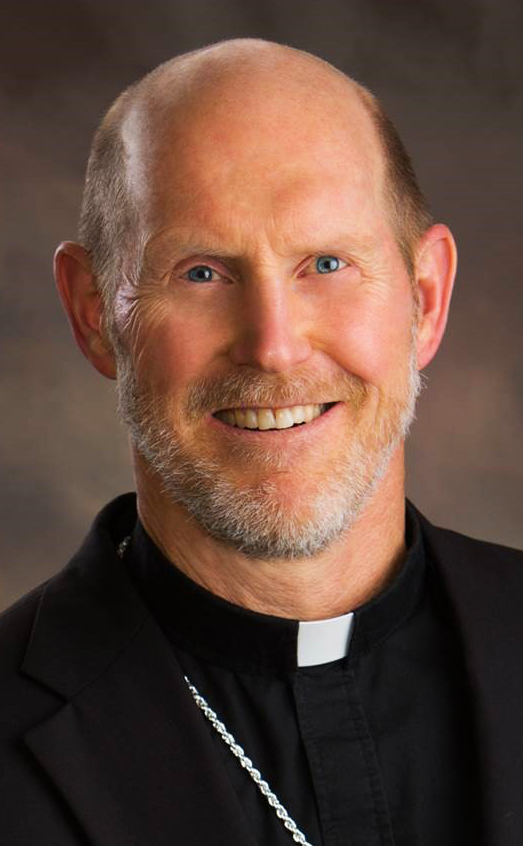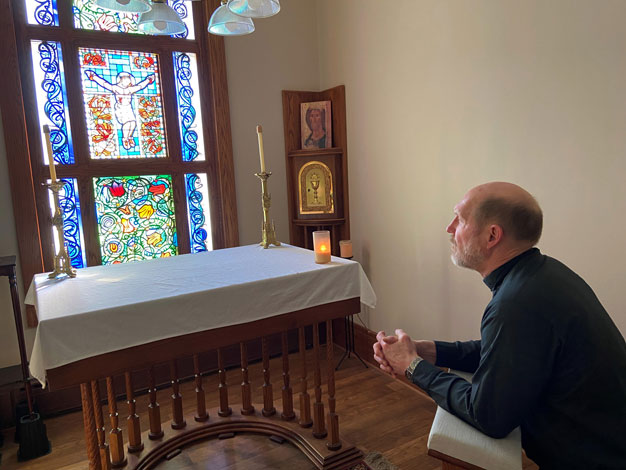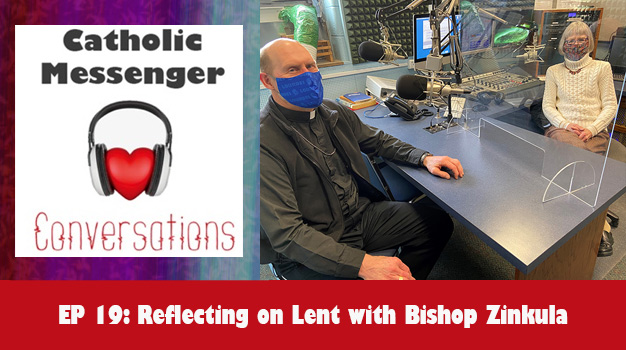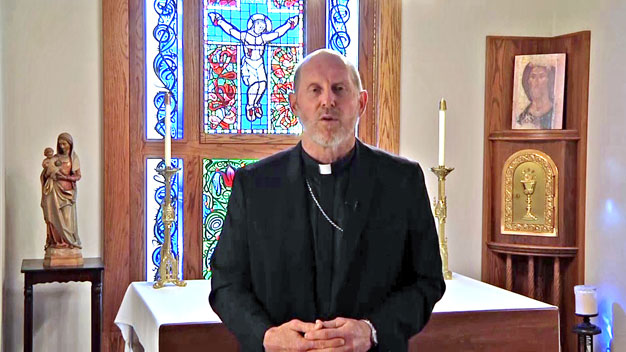Dear Brothers and Sisters in Christ,
It is hard to believe that it has been over a year since the outbreak of COVID-19 was officially declared a pandemic by the World Health Organization, and we made the decision — in the face of the rapid spread of this infection — to temporarily close our church buildings and celebrate the liturgy on-line. I remember celebrating the Sacred Triduum last year at St. Paul the Apostle Parish in Davenport with just a few other people. I must admit, it was a very strange experience, both comforting as I savored familiar texts and gestures, and disturbing as I looked into a camera and out into an empty nave instead of into the eyes of my sisters and brothers.

This year, thankfully, our churches are able to be open and we can gather this Triduum and Easter in person or via technology. We unfortunately are not yet able to be together in the fullness that we miss, but we are getting closer to that day.
As we enter into the holiest days of the year, I invite you to embrace our simplified liturgies rather than bemoan them. I invite you to enter into the silences and rest in God’s presence. I invite you to allow the texts, the readings and the prayers, in all their power, to soak into your bones.
On Holy Thursday, St. Paul will tell us that we are to take, bless, break and give “in remembrance” of the Lord Jesus, offering ourselves along with the one who is both saving victim and priest. John will remind us that doing so commits us to following Jesus’ example of washing feet.
On Good Friday, we will exercise our baptismal priesthood and offer solemn intercessions for the church and world. In light of the ongoing pandemic, we will pray that God, the “source of all life, health and healing” will “grant recovery to the stricken, strength to those who care for them, and success to those working to eradicate this scourge.”
At the Easter Vigil, the Exsultet will bid us rejoice with all of creation, as darkness is overcome by the light of Christ, the prison bars of death are broken, and joy is restored to those who mourn. What a fitting prayer of hope! We will rejoice with those being baptized or coming into full communion with us.
I pray that this one Great Liturgy over Three Days will be a great source of comfort, joy and renewal for all of us. Lent 2021 is drawing to a close, as is — we hope and pray — the long Lent of this pandemic. May we enter into the joy of Easter ready to share the Good News of Jesus with all we meet by washing feet, by being light in the darkness, and by joyfully proclaiming: Christ is Risen!
Christ is Risen, indeed!
Sincerely in Christ
Most Rev. Thomas R. Zinkula
Bishop of Davenport









